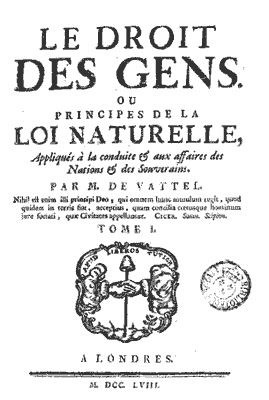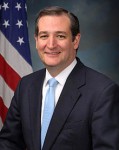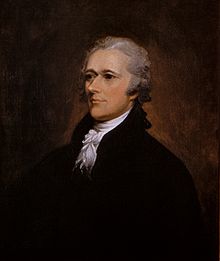“A STRONG CHECK TO THE ADMISSION OF FOREIGNERS INTO THE ADMINISTRATION OF OUR NATIONAL GOVERNMENT”
by Sharon Rondeau
![]() (Nov. 29, 2015) — Florida Congressman Alan Grayson has indicated that if Senator Ted Cruz wins the 2016 Republican nomination for president, he will file a lawsuit challenging Cruz’s constitutional eligibility to serve.
(Nov. 29, 2015) — Florida Congressman Alan Grayson has indicated that if Senator Ted Cruz wins the 2016 Republican nomination for president, he will file a lawsuit challenging Cruz’s constitutional eligibility to serve.
Grayson represents Florida’s ninth district, which includes the entirety of Osceola County and portions of Polk and Orange Counties south of Orlando. He previously represented the eighth district for one term, losing re-election to Republican Daniel Webster in 2010 but running and winning in the redrawn ninth district in 2012.
Grayson is described as “controversial” and has made the claim that in regard to health care, Republicans’ plan is for people to “die quickly” in the event of illness, apparently based on Republicans’ opposition to Obamacare as it was debated in early 2009.
On Sunday morning, major and secondary media reported on Grayson’s announcement made on Wednesday’s edition of the Alan Colmes Show broadcast on the Fox News Radio Network.
Article II, Section 1, clause 5 of the United States Constitution states that “No Person except a natural born Citizen, or a Citizen of the United States at the time of the Adoption of this Constitution, shall be eligible to the office of president; neither shall any person be eligible to that Office who shall not have attained to the Age of thirty five Years, and been fourteen Years a Resident within the United States.”
Clause 5 of the applicable section is sometimes referred to as “clause 4.”

Most media have traditionally purported that a person born within the United States without regard to the citizenship of his parents is a “natural born Citizen” by conflating the two terms. Media often consult current law professors and the Congressional Research Service (CRS) rather than historical documents, including the Congressional Record or Vattel’s “The Law of Nations,” which is believed to have been heavily-referenced by the Framers of the Constitution.
On July 25, 1787, John Jay, who later became the first US Supreme Court Chief Justice under President George Washington, wrote to Washington, then presiding over the Constitutional convention in Philadelphia:
“Permit me to hint, whether it would not be wise & seasonable to provide a strong check to the admission of Foreigners into the administration of our national Government; and to declare expresly that the Command in chief of the american army shall not be given to, nor devolve on, any but a natural born Citizen.”
In 1790, the first Congress passed a law extending U.S. citizenship to “free white persons” “of good moral character.” The 1790 Naturalization Act excluded citizenship to “persons whose fathers have never been resident in the United States…” It stated that children of U.S.-citizen parents “born beyond Sea…shall be considered as natural born Citizens: provided, That the right of citizenship shall not descend to persons whose fathers have never been resident in the United States.”
“Citizenship was inherited exclusively through the father,” reports an online dictionary of the Act.
The 1795 Naturalization Act removed the term “natural born Citizen” and indicated that children born in foreign countries to U.S.-citizen parents were considered simply “citizens.” It also increased the residency requirement for naturalization from two years to five.
According to The Federalist Blog, a person wishing to become a U.S. citizen in the early days of the Republic had to swear an oath of allegiance to the state in which he resided.
In 1868, Rep. John Bingham, considered the main author of the Fourteenth Amendment, said, “Every human being born within the jurisdiction of the United States of parents not owing allegiance to any foreign sovereignty is, in the language of your Constitution itself, a natural born citizen,” a statement read into the Congressional Record in 1866, then called the “Congressional Globe.”
An historically-based piece published in the Chicago Legal News by former ambassador to Italy Breckinridge Long made the case that Charles Evans Hughes, then Woodrow Wilson’s 1916 Republican presidential opponent, was not a “natural born Citizen” for having been born in the U.S. to two British-citizen parents.
Long’s argument stated, in part:
A statement read into the Congressional Record in 1967 by Col. Pinckney G. McElwee, Judge Advocate General, concludes that persons born outside of the U.S., even if to American-citizen parents, cannot be considered “natural born Citizens” eligible for the presidency.
Several constitutional scholars and attorneys believe that the lack of a U.S.-citizen father alone is enough to disqualify a candidate from the highest office in the land, including Barack Obama, because of foreign allegiance.
Several U.S. Supreme Court cases have addressed citizenship, with Minor v. Happersett stating tangentially the understanding that a “natural born Citizen” is a person born in the U.S. to citizen parents.
Cruz declared his presidential candidacy on March 23, 2015. One week prior, two former solicitors general, one presumably a Democrat and one a Republican, wrote an editorial published in the Harvard Law Review making the case that Cruz was constitutionally eligible to serve as president as a “natural born Citizen” by virtue of his birth, albeit in Canada, to a U.S.-citizen mother.
The two stated that Cruz’s birth to a U.S.-citizen parent precluded his naturalization, which therefore renders him “natural born.”
Cruz’s father, Rafael Benvenido Cruz, was born in Cuba and sent to the United States during the upheaval preceding Fidel Castro’s military coup over Fulgencio Batista in 1959. In a 2013 interview with NPR, the elder Cruz stated that he acquired Canadian citizenship while he and his American-born wife, Eleanor Elizabeth Wilson, worked in the oil industry in Alberta, during which time young Cruz was born. Rafael told NPR that he did not become a U.S. citizen until 2005.
The younger Cruz lived in Canada with his parents until the age of four, when the family relocated to Texas.
Two months after the NPR interview, the Dallas Morning News reported that the elder Cruz “remained a Cuban citizen until he became a naturalized American in 2005.”
On August 19, 2013, the same outlet reported that Cruz’s US-Canadian citizenship “may pose a problem if Ted Cruz seeks presidency.” While Washington Bureau Chief Todd J. Gillman did not question Barack Hussein Obama’s claim to dual Kenyan-U.S. citizenship in 2008 after launching his presidential campaign, he has recently communicated with Post & Email contributor and Cruz eligibility challenger Robert Laity following the publication of his recent article titled “Regardless of Canadian birth, Ted Cruz survives ballot challenge in New Hampshire” referencing a hearing by the New Hampshire Ballot Law Commission on November 24 in which all challenges to presidential candidates were overcome, if temporarily.

After Ted Cruz announced his candidacy, The Post & Email submitted requests under the Freedom of Information Act (FOIA) to the U.S. State Department, U.S. Citizenship and Immigration Services (USCIS), U.S. Department of Education (DOE), Federal Trade Commission (FTC), and Selective Service System (SSS) for documents pertaining to his citizenship.
Without written permission from the subject of the request or proof that the requester has a direct and tangible interest in the record, USCIS, the DOE, and the U.S. State Department will not release documentation on an individual despite his position as a public figure and candidate for the nation’s chief executive. The FTC released the documents it possessed online not exempted by provisions of the FOIA, and the Selective Service System released a form which it said was generated as a result of Cruz’s financial aid application made through the DOE.
The American Bar Association (ABA) did not respond to a request for documentation as to Cruz’s applications presumably submitted to the organization.
Cruz’s application for the position of Texas Solicitor General, which he held before his election to the U.S. Senate in 2012, did not ask for citizenship information.
Cruz claimed that he was unaware that he was born a dual Canadian-U.S. citizen until after the Dallas Morning News’s 2013 article was published, after which he took steps to renounce his Canadian citizenship. His documentation on the matter was finalized in June of last year.
A letter sent by certified mail to Cruz’s campaign headquarters requesting that Cruz release more documentation on his background was acknowledged but remains unanswered.
To The Post & Email’s knowledge, Cruz has not released the sought-after documentation of his own volition.
In a 2004 article titled, “The Pernicious Natural Born Citizen Clause of the Constitution: Why Immigrants Like Governors Schwarzenegger and Granholm Ought To Be Able to Become Presidents” author John W. Dean argued that former Michigan Governor Jennifer Granholm, who was born in British Columbia, Canada, should be allowed to seek the presidency if she desired.
Cruz purports to be a strong supporter of the U.S. Constitution, stating, “I’m proud to stand with our founding fathers for our liberties!”
Several reports indicate that Republican frontrunner Donald Trump may select Cruz as his vice-presidential running mate, although Trump, too, has publicly questioned Cruz’s eligibility based on his birthplace.
Months ago, a concerned citizen sent a letter to the Republican National Committee (RNC) predicting that if nominated by the party, Cruz’s eligibility would be challenged by Democrats at a time past that which he could be effectively replaced on the national ballot, allowing for an easy a Democrat victory. To The Post & Email’s knowledge, the citizen received no response.
If those claiming that the citizenship of the father is the most important factor in determining a child’s citizenship and therefore allegiance, neither Obama nor Cruz would qualify as a “natural born Citizen.” Prior to May 24, 1934, children born outside of the U.S. to a U.S. citizen mother did not inherit U.S. citizenship. However, if the father was a U.S. citizen at the time of the birth, the child inherited his citizenship.
Both Cruz and Obama claim foreign-citizen fathers.
The Immigration and Naturalization Act of 1952 stated that in order for a child born outside of the U.S. to “one U.S. citizen parent and one alien parent” to acquire U.S. citizenship, the U.S.-citizen parent would have had to have resided in the United States for “a period of ten years, five after the age of fourteen.”
Elizabeth Wilson’s history has not been widely disseminated to the public, although it has been reported that she graduated from Rice University in Houston.
Over the past seven years, many Americans have expressed concern that Barack Hussein Obama appears to be aiding and abetting America’s enemies, bowing to foreign dignitaries, apologizing for what he sees as America’s mistakes, and demonstrating allegiance to foreign entities and Islam rather than the United States and its Jude0-Christian heritage. Mainstream commentators and columnists have begun to opine that Obama’s background was never researched properly as he sought the presidency.
In 2012, a criminal investigation found that Obama’s long-form birth certificate and Selective Service registration form are “computer-generated forgeries” which the media refused to investigate on its own. A retired military officer and former congressman has stated that Obama is “working counter to the security of the United States of America.”
The late Alan Caruba said last year that Obama was “destroying the U.S. military” while purporting to be its constitutional commander-in-chief.

In Federalist #68, titled “The Mode of Electing the President,” Framer Alexander Hamilton wrote:
“THE mode of appointment of the Chief Magistrate of the United States is almost the only part of the system, of any consequence, which has escaped without severe censure, or which has received the slightest mark of approbation from its opponents. The most plausible of these, who has appeared in print, has even deigned to admit that the election of the President is pretty well guarded.1 I venture somewhat further, and hesitate not to affirm, that if the manner of it be not perfect, it is at least excellent. It unites in an eminent degree all the advantages, the union of which was to be wished for…
“Nothing was more to be desired than that every practicable obstacle should be opposed to cabal, intrigue, and corruption. These most deadly adversaries of republican government might naturally have been expected to make their approaches from more than one querter, but chiefly from the desire in foreign powers to gain an improper ascendant in our councils. How could they better gratify this, than by raising a creature of their own to the chief magistracy of the Union? But the convention have guarded against all danger of this sort, with the most provident and judicious attention. They have not made the appointment of the President to depend on any preexisting bodies of men, who might be tampered with beforehand to prostitute their votes; but they have referred it in the first instance to an immediate act of the people of America, to be exerted in the choice of persons for the temporary and sole purpose of making the appointment. And they have excluded from eligibility to this trust, all those who from situation might be suspected of too great devotion to the President in office. No senator, representative, or other person holding a place of trust or profit under the United States, can be of the numbers of the electors. Thus without corrupting the body of the people, the immediate agents in the election will at least enter upon the task free from any sinister bias. Their transient existence, and their detached situation, already taken notice of, afford a satisfactory prospect of their continuing so, to the conclusion of it. The business of corruption, when it is to embrace so considerable a number of men, requires time as well as means. Nor would it be found easy suddenly to embark them, dispersed as they would be over thirteen States, in any combinations founded upon motives, which though they could not properly be denominated corrupt, might yet be of a nature to mislead them from their duty…”


